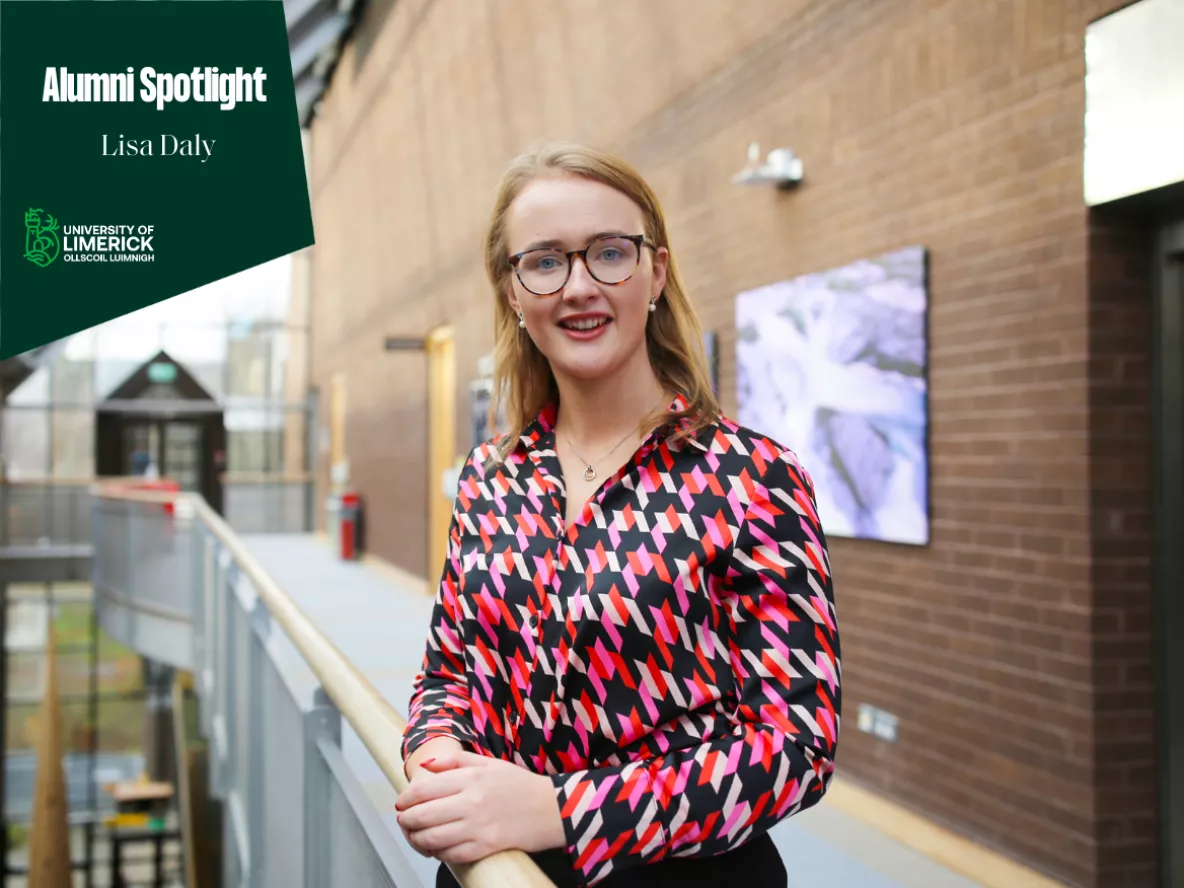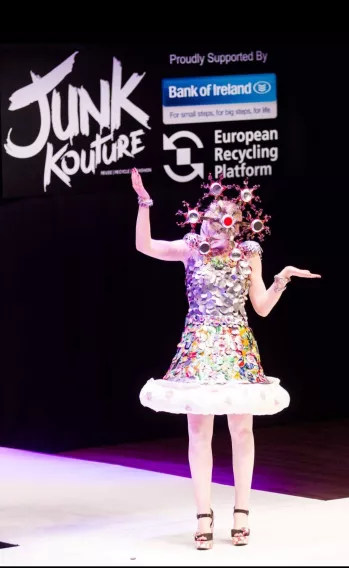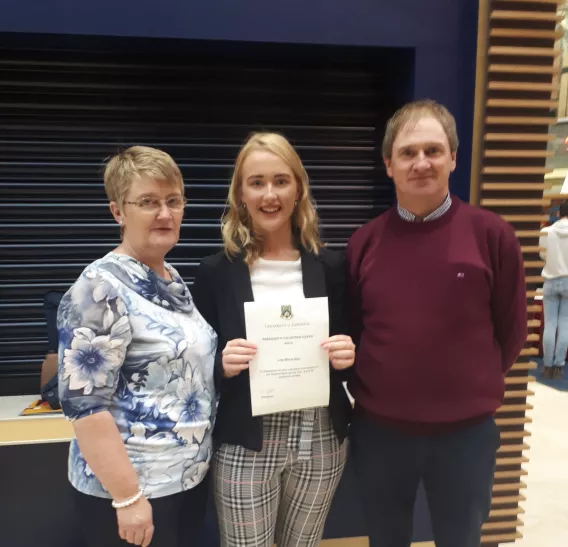

In the next instalment of our Alumni Spotlight series, we speak to University of Limerick graduate Lisa Daly, who studied Design and Manufacture Engineering at the Faculty of Science and Engineering.
Lisa is a Procurement Specialist with Abbott Nutrition in The Netherlands. She shares how visiting UL during her time in secondary school influenced her decision to come and study here, how her Co-op with Abbott led to securing a place on a three-year Operations Professional Development Program, along with her advice for women in STEM.
Can you tell us a bit about yourself, your background, why did you choose UL?
My name is Lisa Daly. I currently live in Zwolle, The Netherlands. I graduated from Design and Manufacture Engineering in 2020. I am originally from Timahoe, Co Laois. My family are farmers; my mother runs her own upholstery business, and she is also a further education teacher.
I have a big interest in sports. I used to play pickle ball in the US but since I moved to the Netherlands I have started rugby.
While I was in secondary school, I took part in Junk Kouture and the BT Young Scientist, and through both competitions, I got to spend time in UL. I really fell in love with the beautiful campus and the exciting opportunities UL offered.
Why did you choose the Bachelor of Engineering in Design and Manufacture?
I did a competency test which showed creativity was important to me and that I liked challenges and problem solving. I got feedback from my mam’s friend that I should consider engineering, and, at that point, I had no idea what engineers did.
As engineering was not on my radar until the final year of school, I did not choose suitable Leaving Certificate subjects that would have best prepared me for engineering. However, I really enjoyed the Design and Communication Graphics Leaving Cert subject, especially the drawing and the Computer-Aided Design (CAD) elements of the course. UL’s Design and Manufacture Engineering course had modules to grow these skills.
I liked learning about how things are made and the whole lifecycle of a product from designing to recycling, and that is why I chose Design and Manufacture Engineering.
What did you enjoy most about the course?
I enjoyed projects the most as they encouraged innovative thinking and research knowledge on how practically to make and get a product to market.
Throughout my time studying Design and Manufacture Engineering I worked on a diverse range of projects from a domestic water turbine, a model race car, a vaginal speculum to using a drone to scan agricultural crops.
What did you enjoy about UL, and what is student life like here?
I enjoyed trying lots of the clubs and societies that UL offers. I have great memories from my time with the social soccer, GAA and WiSTEM2D clubs.
WiSTEM2D is a UL society which supports the underrepresented in Science, Technology, Engineering, Maths, Manufacturing and Design. We did many social events and supported initiatives like IWISH, which is an outreach conference to showcase STEM to younger girls.
In 2018, I was honoured with the Johnson and Johnson (J&J) WiSTEM2D Award, providing fantastic networking and mentoring opportunities.
The President’s Volunteer Award (PVA) is a fulfilling program UL runs to encourage giving back to the community during our student life. I received PVA Gold in 2019 for over 60 volunteer hours, which included coaching Gaelic football, leading a Foróige art group, participating in Friends of the Earth campaigns, and fundraising for Breast Cancer Ireland and Down Syndrome Ireland.
Where did you complete your Cooperative Education Experience?
I did my Co-op in Abbott Diagnostics, Longford. Internships at Abbott are well-structured and offer lots of opportunities and mentorship. My Co-op with Abbott opened the door to their Operations Professional Development Program (OPDP). This is a three-year programme where the first year is in a technical role, the second year is in a supervisory role, and the third year is an Operational Excellence role at one of Abbott’s Global locations.
The OPDP is a global programme, so it was a fantastic way of connecting with colleagues globally, who worked in different roles with different products and diverse backgrounds. It was a great honour to be awarded OPDP of the Year during our graduation from the programme in Chicago last year.
How did UL support you throughout your studies?
UL was a great support - when I was a prospective student the course director, David Tanner, took the time to meet with me and answer my questions about the course. The Maths Learning Centre is a fantastic resource in UL, I am very grateful for the support I got there.
Can you update us on your career? Does it still hold relevance to what you would have studied in UL?
Since leaving UL, I've worked as a Validation Project Engineer with Diagnostics products in Abbott Longford, an Operations Production Supervisor with Vascular Stents in Abbott in Tipperary, a Project Manager with Infant Nutrition in Abbott in Michigan, and a Procurement Specialist with Nutritional Products in Abbott in The Netherlands.
Working in manufacturing plants and operations, many modules from Design and Manufacture Engineering – such as industrial organization, experimental design, simulation modelling, and ergonomics – became very useful.
The modules in Design and Manufacture Engineering were industry-focused, so as I changed jobs and worked on different projects, there was a lot of relevance to the fundamental skills of the course.
What are your future career plans?
There is a lot more I want to learn about in Procurement and Supply Chain. Sustainability is becoming a growing space and something I am personally passionate about.
Do you have any advice for other women who might be considering a career in engineering?
I would encourage anyone considering engineering to talk to different types of engineers and people who studied engineering (find us on LinkedIn or from lecturers), so that you can learn about the wide range of engineering roles and how rewarding a job in engineering can be.
A lot has been done, and there is a lot more to do to create a more equitable gender divide in engineering. It is important for all engineers to take the responsibility to consider how to make the industry more balanced. The full value of having diversity still has not been unlocked in engineering, but I hope any prospective students reading this consider the impact they could make with a career in engineering.

Lisa Daly modelling her creation at the Junk Kouture Competition at University Concert Hall in 2014

Lisa Daly with her parents Denis and Margaret Daly on receiving a Gold President's Volunteer Award in 2019
Postal Address: Science & Engineering Faculty Office, Lonsdale Building, 1st Floor, University of Limerick, Limerick, Ireland
Email: scieng@ul.ie
Phone: +353 (0)61 202109 or +353 (0)61 202642